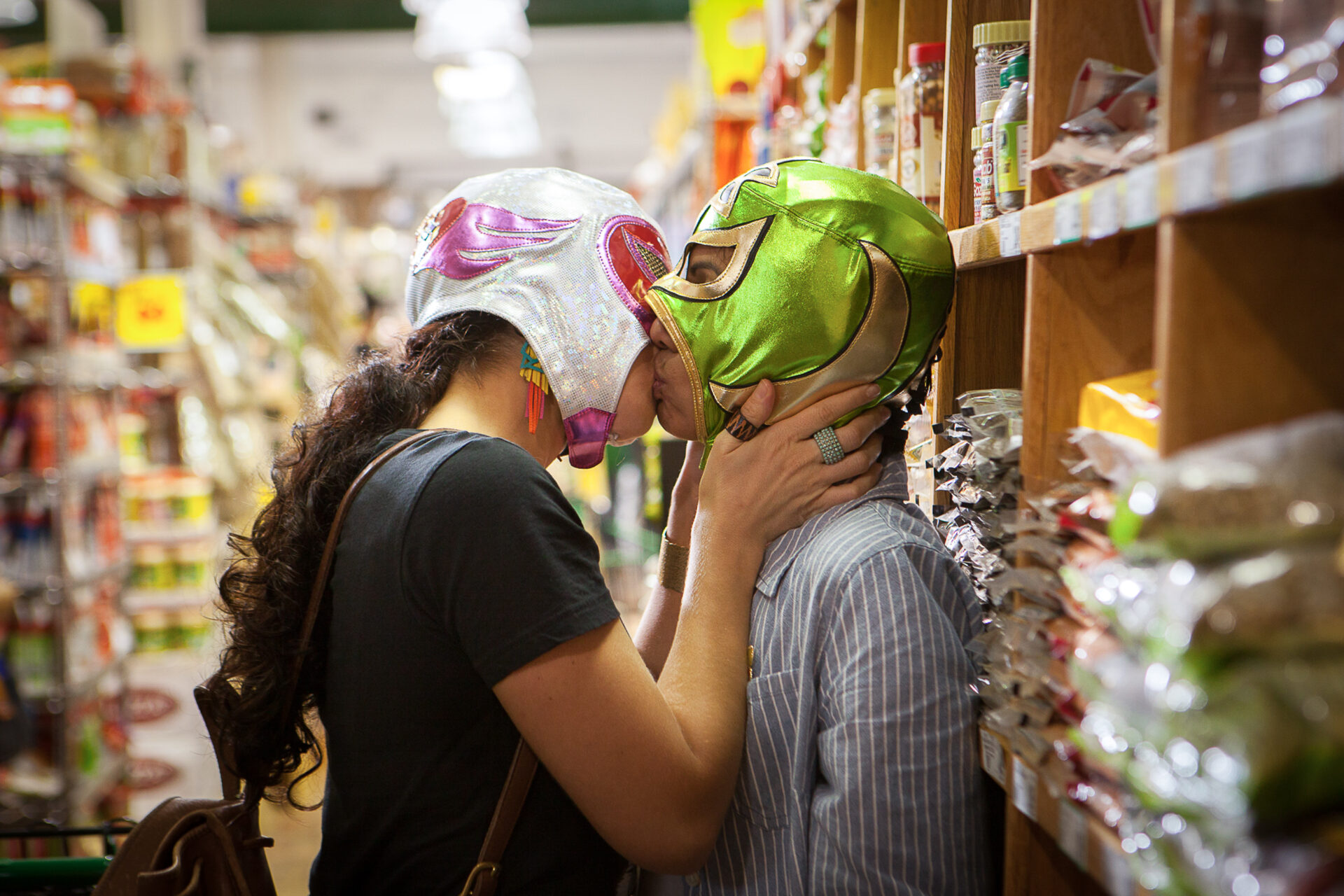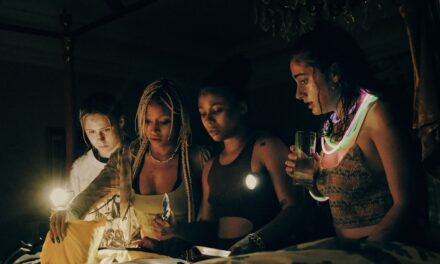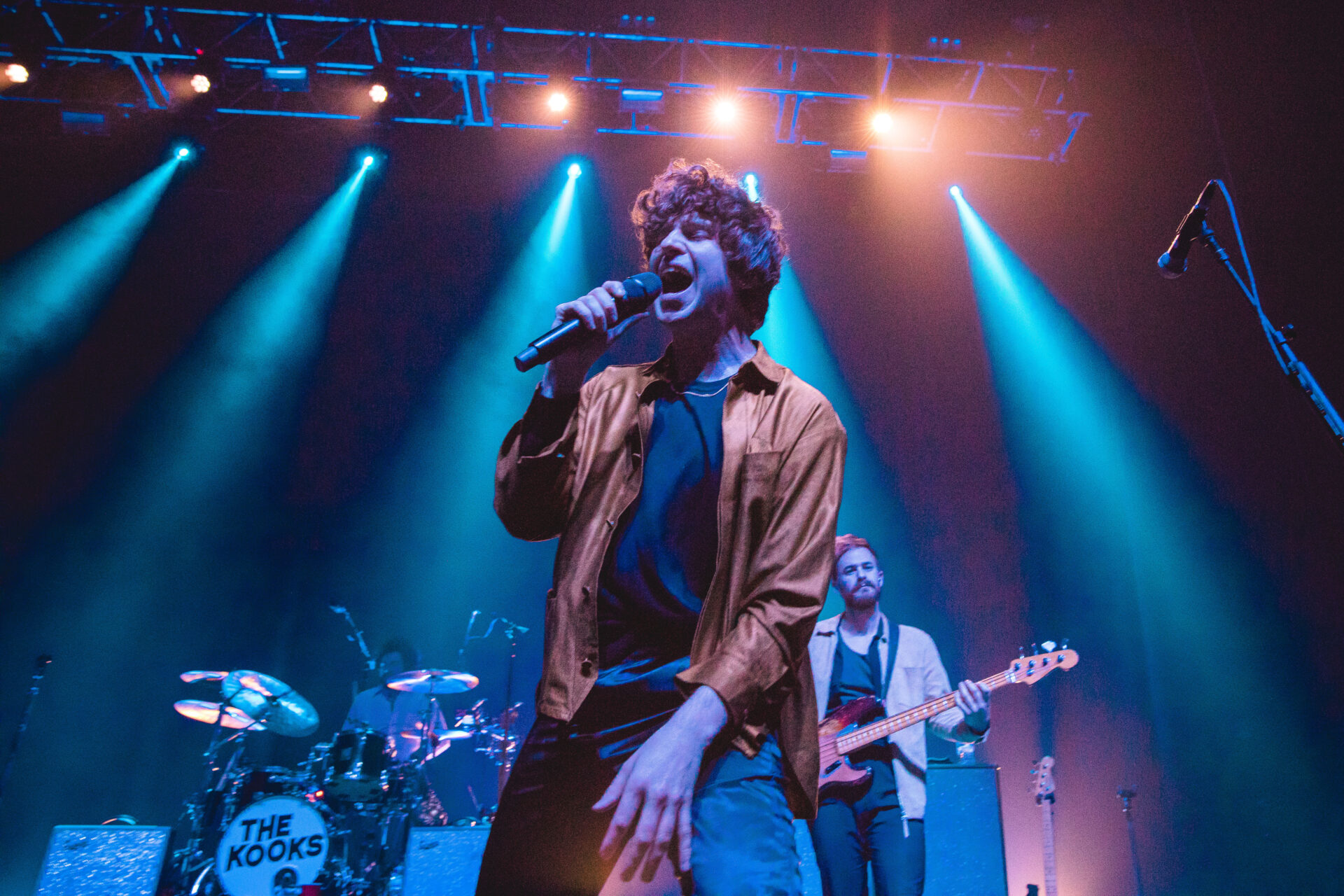Ben Brewer’s Arcadian contains much of what you’d expect from a sci-fi apocalyptic story, taking a sample from plots in past forms like I Am Legend or A Quiet Place. Something has happened that quickened the fall of humanity involving humongous, almost humanoid bugs. There isn’t a clear consensus on how they arrived and the inflection point of their overrun, but Michael Nilon’s script uses the character in the story, which makes some creatives guesstimate how that happened. Some rules are simple: you try to salvage what you can to survive, you don’t go out after dark, and there are only certain parts of the land you want to venture out to. If this sounds like a very straightforward plot, it is. What Arcadian is banking on is the family drama that pulls most of these strings together into cohesion anchored by three good performances by its central family.
Speaking of a prologue, Arcadian sticks to the details. Paul (Nicolas Cage) runs from a pretty chaotic scene obscured from the audience – but the abundance of smoke, gunfire, and screams signal that something terrible is going down. While he’s running away, he sees two twin infants abandoned that he takes as his own. Fifteen years later, Paul, Joseph (Jaeden Martell), and Thomas (Maxwell Jenkins) set a standard routine down. However, the brothers have different interests (as any siblings would). Joseph is more scientific, working on equations and machinery in hopes that humanity doesn’t have to retreat from this threat one day. Thomas, well, he’s always going to a nearby farm to help a family because he’s taking a liking to their daughter, Charlotte (Sadie Soverall). At the beginning of Arcadian, you see the unit together, but there is some tension between Joseph and Thomas. It doesn’t feel deeply rooted, as the film would like you to believe. It boils down to Thomas wanting to do things without worrying about caring for his little brother. That’s an interesting point because Joseph is usually alone, taking care of things around their farmhouse.
While the motivations for animosity might be sparse, Martell and Jenkins at least bring a realness to what it looks like. Paul is mainly left to be the peacekeeper of the stoic dad who is only focused on the goal of making it to the next day. Arcadian does have a moment where Cage can express a certain amount of hopefulness through conversation. Besides that, Paul is mainly relegated to the side or used as a device to bring the brothers together.
A highlight of Arcadian is the look and sound of the monsters. While there is CGI, when there are a massive number of them, there are genuine spaces where the practical effects invoke a feeling of dread. This is due to the need for help understanding what they are and how their bodies evolved to this incarnation. Once they are riled up, they also make a death rattle noise that never gets old and adds an extra layer to why they are so formidable. The issues with Arcadian are partly due to everything that came before it and perhaps twisting these scenarios in every which way we are familiar with. Is there faith that humans will rise above this threat? It’s mostly contained to experiences that don’t really have time to move to fruition because of the runtime and talks that don’t get expounded upon. Arcadian works to a significant, bombastic conclusion as if it doesn’t want to hint at something broader. The thing is, it does for some time. There are themes of teenagers growing up in a world where everything is broken and not knowing anything past that and how family has to stick together even through disagreements. What’s frustrating about Arcadian is that it undoubtedly has potential, but it doesn’t take time to get to the light at the end of the tunnel.












